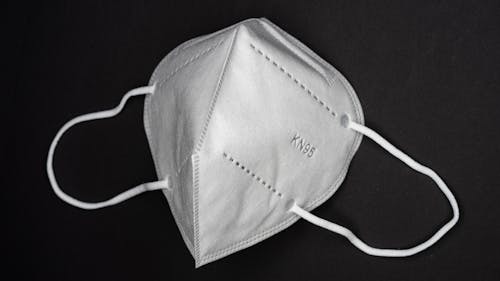KN95, N95 face masks provide best protection against coronavirus, Rutgers experts say

The Centers for Disease Control and Prevention (CDC) recently updated its guidance regarding masks, stating that surgical, KN95 and N95 masks are more effective than cloth masks.
Loosely woven cloth masks offer the lowest amount of protection against the coronavirus disease (COVID-19), while respirators — masks with specialized air filtration, such as N95 masks — provide the most protection, according to the announcement.
Martin Blaser, director of the Center for Advanced Biotechnology and Medicine, said the new recommendations for mask-wearing were made after observing the omicron variant’s high level of contagiousness.
He said he agrees with the CDC’s updated guidelines and was not surprised by the announcement, especially in light of the rise in COVID-19 cases due to the spread of the omicron variant.
“This omicron (variant) came out of nowhere,” Blaser said. “It came very fast, and people have been kind of scrambling to understand what's going on, and to take appropriate steps.”
He said that after the CDC issued the updated mask recommendations, he personally switched from wearing cloth masks to surgical masks.
Blaser said the main difference between each of the masks’ effectiveness is the way they are structured. Cloth masks typically have larger pores and fewer layers than surgical masks or respirators, which allows for more virus particles to enter through the fabric.
Though, wearing any mask provides more protection than not wearing one at all, he said.
Brian L. Strom, chancellor of Rutgers Biomedical and Health Sciences, said that Rutgers students who are on campus should understand the importance of mask-wearing in general.
“The biggest mistake would be to wear no mask — this pandemic is still underway, and omicron is incredibly contagious,” he said. “Less bad would be a cloth mask. A surgical mask would clearly be preferable, though, to a cloth mask, and an N95 or KN95 would be best.”
Blaser also said students can still reuse surgical masks multiple times, as long as they keep the masks clean. This would ensure that substances such as cosmetics are kept from interfering with the mask’s function, he said.
Additionally, Blaser said that while N95 masks are considered the most effective type of face coverings in protecting against COVID-19, they are mainly only necessary for those who are in high-risk groups, such as essential workers and immunocompromised individuals.
He said he expects Rutgers to take the new recommendations into account when forming its own policies regarding mask-wearing in University buildings, in accordance with CDC guidelines and expertise.
Rutgers has not yet required the use of any specific type of mask amid its mandate for face coverings in University buildings, according to a recent announcement.
In the announcement, Antonio M. Calcado, executive vice president and chief operating officer, said the University has obtained a supply of KN95 masks to be made available for students, faculty and staff, which will begin distribution this Saturday.
The University will also continue to provide free cloth face coverings to students and employees, according to the announcement.
Blaser said that during this particular stage of the pandemic, the average fully-vaccinated individual's experience with COVID-19 is relatively less severe than before.
“The good news is that on average for people who are fully vaccinated, the omicron (variant) may not be more severe than having a case of the flu from years past,” he said. “That's a big improvement.”



